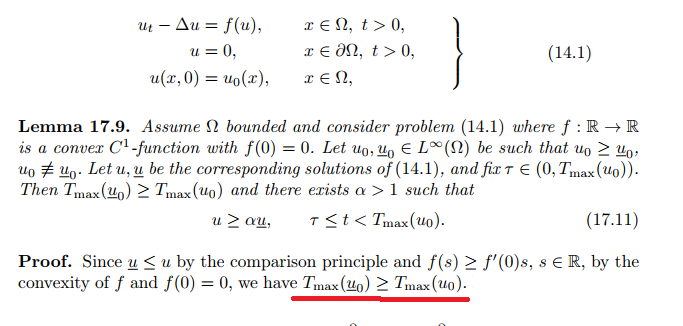I'm reading the book superlinear parabolic problems and I came across the following situation twice: given two initial data $u_0$ and $\underline{u_0}$ with $u_0\geq \underline{u_0}$, $u_0\neq \underline{u_0}$, and considering $u$ and $\underline{u}$ the solutions of the problem below corresponding to these data, then maximal existence time of the $\underline{u}$ is larger than $u$, this is $T_{\max}(\underline{u_0})\geq T_{\max}(u_0)$. Is this always true? Is it an already formalized theorem? Where can I find him? Below I put the studied problem, and the Lemma in which I saw this fact
$\begingroup$
$\endgroup$
2
-
$\begingroup$ i assume it must be maximum principle. Can one show if the solution blows up it must blow up to $+\infty$ and not $-\infty$ ? IF so maybe you can use one as a supersolution for the other to give desired... $\endgroup$– Math604Commented Oct 15, 2021 at 18:26
-
$\begingroup$ I didn't quite understand, the maximum principle I know is about keeping the initial data inequalities for the corresponding solutions, so I can't see how to relate this to solution time, at least not from this version I know. $\endgroup$– IlovemathCommented Oct 16, 2021 at 22:15
Add a comment
|

